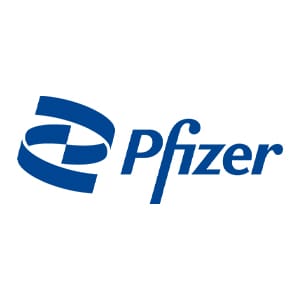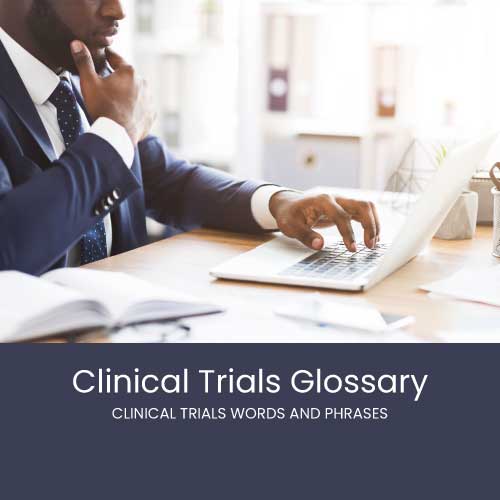Background Information:
Prostate cancer is one of the most common types of cancer. It becomes “metastatic” when it spreads to other parts of the body. Surgery or radiation alone cannot fully treat metastatic prostate cancer. Patients often need hormone therapy.
When prostate cancer spreads (metastatic) but still responds to medical or surgical treatments, it is called metastatic castration-sensitive prostate cancer (mCSPC). Researchers have found that a protein called EZH2 can be higher in some prostate cancers. High levels of EZH2 may make prostate cancer more likely to resist hormone therapy.
The study medicine, called mevrometostat, blocks EZH2. Researchers believe it may work by stopping cancer cells with abnormal EZH2 levels from growing. This could help delay resistance to hormone therapy.
Study Medicine Mevrometostat in Phase 3 Trial of Patients Diagnosed With Metastatic Castration-Sensitive Prostate Cancer (mCSPC) Who Have Not Tried Hormonal Therapy or Chemotherapy for Metastatic Prostate Cancer
Overview
The primary goal of this clinical trial is to determine if adding mevrometostat to the standard therapy (enzalutamide) is more effective in treating metastatic castration-sensitive prostate cancer compared to enzalutamide alone with a placebo.
All patients in the trial will receive enzalutamide. Some will also receive mevrometostat, while others will receive a placebo (a look-alike pill with no active drug).
Participants have a 50% (1 in 2) chance of receiving the study medicine (mevrometostat) and a 50% (1 in 2) chance of receiving a placebo. Everyone in the study will take enzalutamide which is a capsule taken once daily. Mevrometostat or the placebo will be taken twice a day as tablets. Neither you nor the study staff will know whether you are receiving mevrometostat or the placebo (double-blind trial).
What is the Purpose?
Pfizer MEVPRO-3 (C2321008) is a randomized, double-blind, placebo-controlled study. It aims to check whether adding the study medicine (mevrometostat) to enzalutamide is safe and effective for treating mCSPC compared to enzalutamide alone.
The study will include approximately 1,000 participants and will assess whether mevrometostat helps delay or prevent resistance to hormone therapy and improves overall survival.
What Type of Therapy is Used?
All participants will receive enzalutamide, the standard treatment for this kind of prostate cancer. It is taken by mouth once a day (capsules). About half of the participants will also receive mevrometostat, while others will receive a placebo (a look-alike pill with no active drug). The study medicine, mevrometostat, is taken by mouth twice a day (tablets).
Prostate cancer cells use hormones, like testosterone, to grow. Hormone therapy lowers these hormones or blocks their effects. EZH2 is a gene that helps make proteins that control how cells grow, divide, and repair. When this gene becomes abnormal, it can cause prostate cancer cells to grow uncontrollably. By blocking abnormal EZH2 activity, mevrometostat may delay or stop resistance to hormone therapy and slow cancer progression.
Length of Study Participation
How long you stay in the study depends on how your cancer responds to the treatment and how well you tolerate any side effects.
Who can Participate?
Eligibilty Criteria:
- Men who are at least 18 years or older
- Diagnosed with metastatic castration-sensitive prostate cancer
- Have not started other treatments such as chemotherapy or another hormone therapy for metastatic prostate cancer
These are not the only eligibility requirements. Please speak with the study doctor for more details.
Key Exclusion Criteria
- A history of any other cancer in the past 3 years (except certain skin cancers or early-stage cancers that have been cured)
- Serious heart, kidney, or liver disease
(This list is not complete. Please talk with the study doctor to learn more.)
What’s Involved?
- Participants in the trial will be placed into one of two groups:
- Mevrometostat plus enzalutamide
- Placebo plus enzalutamide
Here’s What to Expect:
- Mevrometostat/Placebo: Take tablets by mouth twice a day.
- Enzalutamide: Take capsules by mouth once a day.
Visits:
- You will visit the study site about every 4 to 8 weeks during treatment and every 8 to 12 weeks during follow-up.
- Visits include health checks, surveys, blood tests, ECGs, CT/MRI scans, and optional biopsies (if needed at screening).
Visit Schedule:
- Clinic visits every 4 to 8 weeks during treatment
- One follow-up visit about 4 to 5 weeks after treatment stops
- Long-term follow-up visits every 8 to 12 weeks
Study Timeline:
- A 28-day screening period
- A treatment period
- A 28- to 35-day safety follow-up
- Long-term follow-up every 8-to-12 weeks until you leave the study or it ends
Participation Length:
- Your participation will depend on how your cancer responds and how well you tolerate the treatment and its side effects (if any).
- You can keep taking the study medicine until the cancer worsens or side effects become too hard to manage.
- You can remain in the study if there is a benefit or until the study ends.
Tracking:
- You will keep an electronic diary of when you take your medication.
Possible Patient Benefits
- This treatment could slow or stop the spread of prostate cancer and may help you live longer, based on imaging scans (radiographic progression analysis).
- You will receive regular medical check-ups and close monitoring for safety.
Possible Patient Risks
- Adding the study medicine (mevrometostat) to enzalutamide might not help prevent disease progression.
- Mevrometostat may also cause side effects.
ORGANIZATION:
- Pfizer
- If you are interested in learning more, please visit www.Mevpro3.com
Clinicaltrials.gov Information:
- NCT Number: NCT07082283
- Title: This Study Will Explore Whether a Combination of the Investigational Drug Mevrometostat (PF-06821497) and Enzalutamide Will Work Better Than Taking Enzalutamide Alone in Participants With mCSPC Who Are ARPI naïve.
Use the “clinical trials glossary” and “dictionary” for words, phrases and treatments that you may not understand.
Register your interest or comments about this trial with PHEN
Please Note: This information is provided for educational and awareness purposes. A decision on clinical trials participation is to be made between the patient and his doctor.


